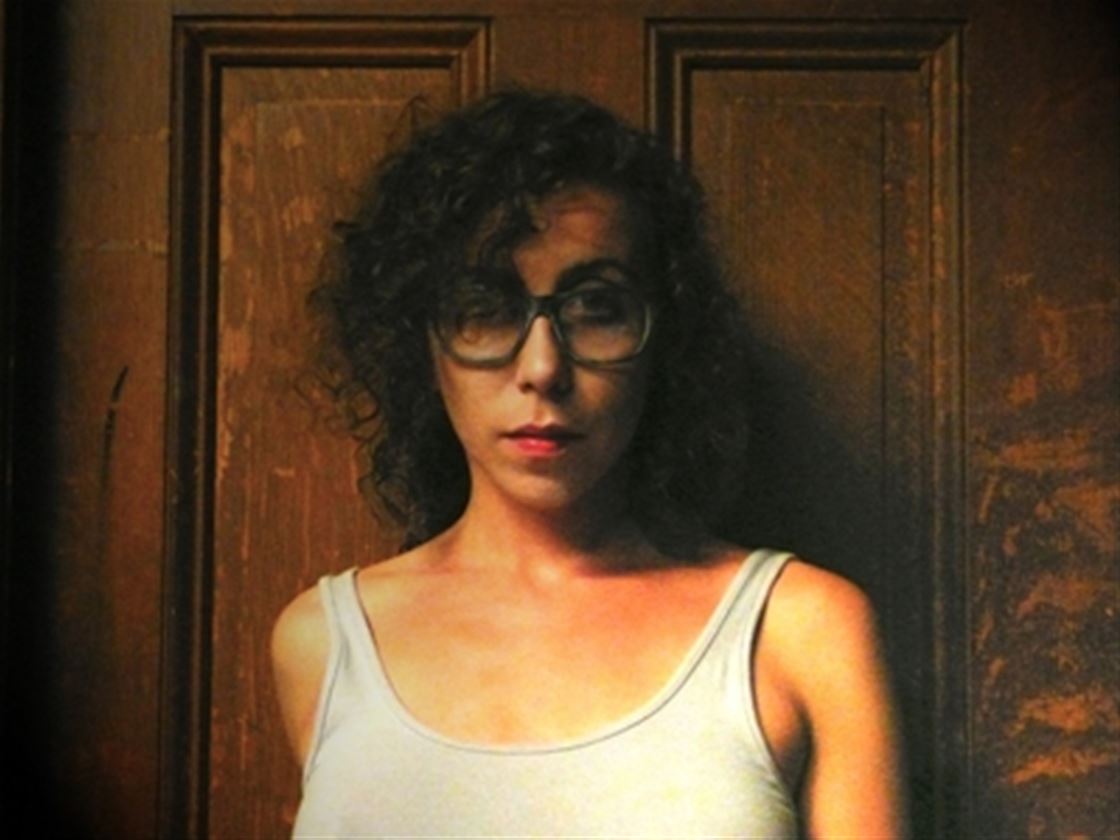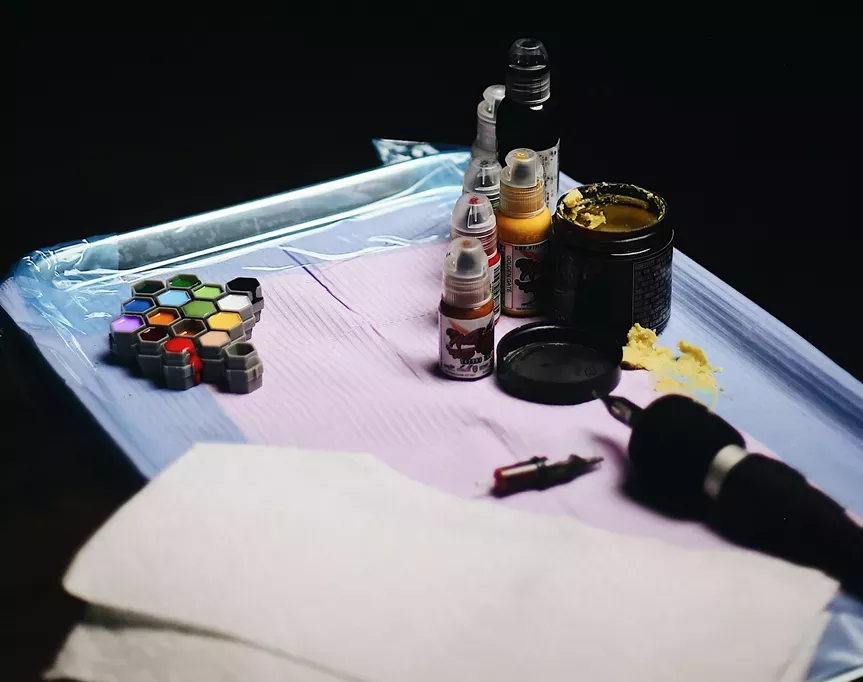a chit-chat with ariana reines
If you happen to be heading Hobart-way for Mona Foma this week, keep an eye out for Ariana Reines, you lucky thing.
If you happen to be heading Hobart-way for Mona Foma this week, keep an eye out for Ariana Reines, you lucky thing. The poet, playwright and performance artist (who happens to hail from the world’s spookiest city – Salem, Massachusetts) is making her maiden voyage to Australia, ready to treat us to her spoken word offerings.
We had a chinwag with Ariana before she hopped on a plane. Have a read below, then head here if you’re keen to nab a ticket.
Tell us, what sort of poetry do you write? I work a lot with sex, the internet, ideas of God, and a kind of documentary poetics. That is, working with documents that are really immediate like the internet and the way that language happens on our phones and in the computer, but also documentary insofar as I look at ancient texts and the whole corpus of literature, especially medieval and older. So it’s a kind of weird combination.
How has where you grew up influenced you as a writer? I think it’s been a very big influence. Salem and Massachusetts, it’s a very weird place. A lot of the repressions and the fantasies of early American culture feel very real there. It’s definitely a place where a lot of comedians and crazy people come from – a hotbed for weirdos. If you’re going to survive, you’re going to end up with some sort of very strange relationship to your own freakiness. I do very much feel like a product of the weird state I come from and the whole story of women that it tells.
In what ways have you explored those themes through your writing? Well, a lot of repressed ideas of the feminine have been really interesting to me. The first play I wrote, Telephone, investigated the occult side of technology – the séances and magical happenings and spiritual ideas that were connected to the beginnings of electricity and the early telephone. But also it explores how insanity, and specifically schizophrenia, was in its early days very much a female disease. If you think of Salem as the place that’s famous for its witch trials, I’m also very interested in the more abstracted witch hunt. The way that groups behave, and different kinds of power and fear get buried in women. In women’s bodies, in women’s knowledge, women’s ways of articulating themselves. I’m just very interested in how that aggregates and organises itself into language and culture.
As a child, what did you want to be when you grew up? Was writing always on the cards? What I really loved doing as a child was dancing and music. I was a little bunhead, a ballet child. But I always, always wanted to be a writer. I had this weird idea in high school that you had to do one thing only, which I don’t really think is true. Weirdly enough, poetry has sort of led me into a lot of different disciplines artistically. I’ve found that poetry is really a physical art. It has a lot to do with just being in your body and in touch with your body. So it’s kind of been this weird vessel that has carried me closer to dance and theatre and the visual arts than I thought it could back in high school.
What draws you specifically to poetry as a form of writing? Poetry is really mysterious. It’s hard to explain, but I’d say it had something to do with discovering Rimbault and discovering my sexuality at the same time in high school. Poetry just seemed like the most ecstatic form of consciousness that I’d ever discovered. It got me. I think that if I could take a step back and try to rationalize it, I might say why didn’t you choose something else? But it got me.
When do you feel most compelled to write a poem? Do you need to be in a certain situation or state of mind? It’s a combination of things. Poetry is really portable – that’s something that’s really wonderful about it. You can be available to it when the moment takes you. It’s also something that I do cultivate as a practice. I like to write in the morning before I’ve said anything to my boyfriend or looked at my phone. I find that it’s also a meditative practice, and that is something I give to myself.
You’re also a playwright – does this require a different set of conditions again? The playwrighting is a different process because it operates in different ways. There are different types of research that go into it, there’s a different timeline, of course it’s a longer project, a longer structure, so it involves more collaboration and more people. But it definitely still comes out of the state of consciousness that I experience when writing poetry. It’s sort of an extension of that. There are ways to extend the term of bliss that you’re in in the intensity of writing a poem, to extend that into the writing of prose, the writing of dialogue, even the writing of a research-based project, which my theatre tends to be.
Poetry isn’t always a popular form of writing, especially amongst young people. What do you wish people knew about it? There are a lot of crappy ways that people talk about poetry, that people think about it, that it’s taught, that are just kind of deadening and seem awful. But I actually think it’s an unbelievable golden age for poetry. More and more people than ever are writing because people write emails and texts, and even though that might seem really superficial, what it means is that people are having a material experience of language. They’re experiencing language as a physical substance that they have to use to work with. And they’re experiencing the emotions of communication because of this. Language is almost a living creature, so I actually think people are writing more unbelievable poetry on a more mass level than I’ve ever seen. I’m totally happy not to be an evangelist for poetry. If you think poetry’s uncool and you don’t want to read it, that’s fine with me! And if you are weirdly infected by its mystery and you’re drawn into it, it’ll take you on an adventure. I love that about it.
Could you tell me a bit about your upcoming performance at Mona Foma, and what people can expect? At a couple of the more intimate venues I'm going to be doing a more straight poetry reading, but the way I do that isn’t exactly straight. One of the things I love about a poetry reading is that it can be the most awful or most wonderful thing in the world, but it’s not just like going to the theatre or a movie and sitting there, it’s more participatory. And what I’m really excited about, especially for the smaller venues, is getting to hear from and meet people in Hobart and hear your language and way of talking. For the bigger venue, it’s going to be a project that involves video and sound – a bit closer to the line between theatre and performance.

_(11)_(1).png&q=80&h=682&w=863&c=1&s=1)













.jpg&q=80&w=316&c=1&s=1)













.jpg&q=80&w=316&c=1&s=1)










